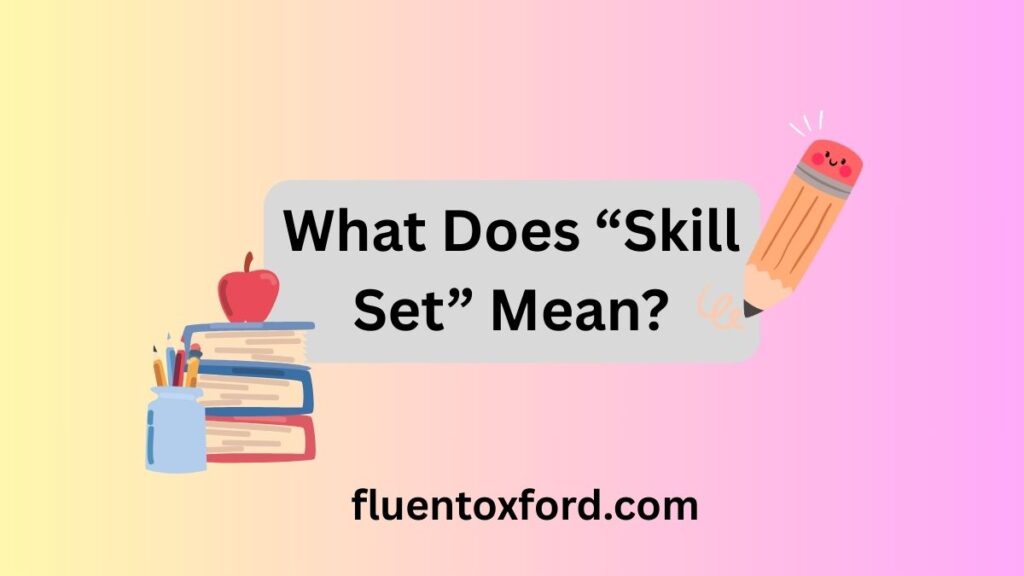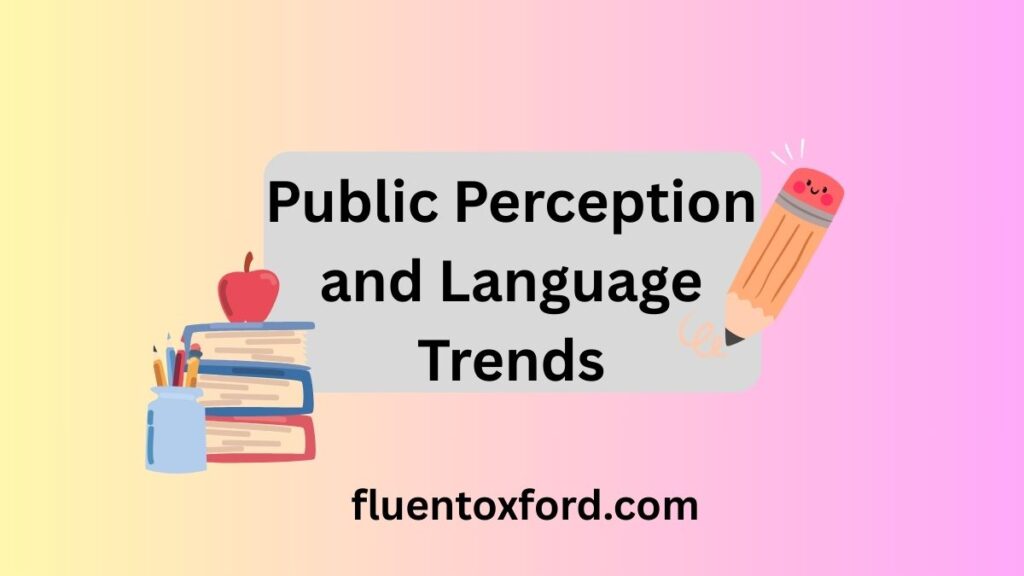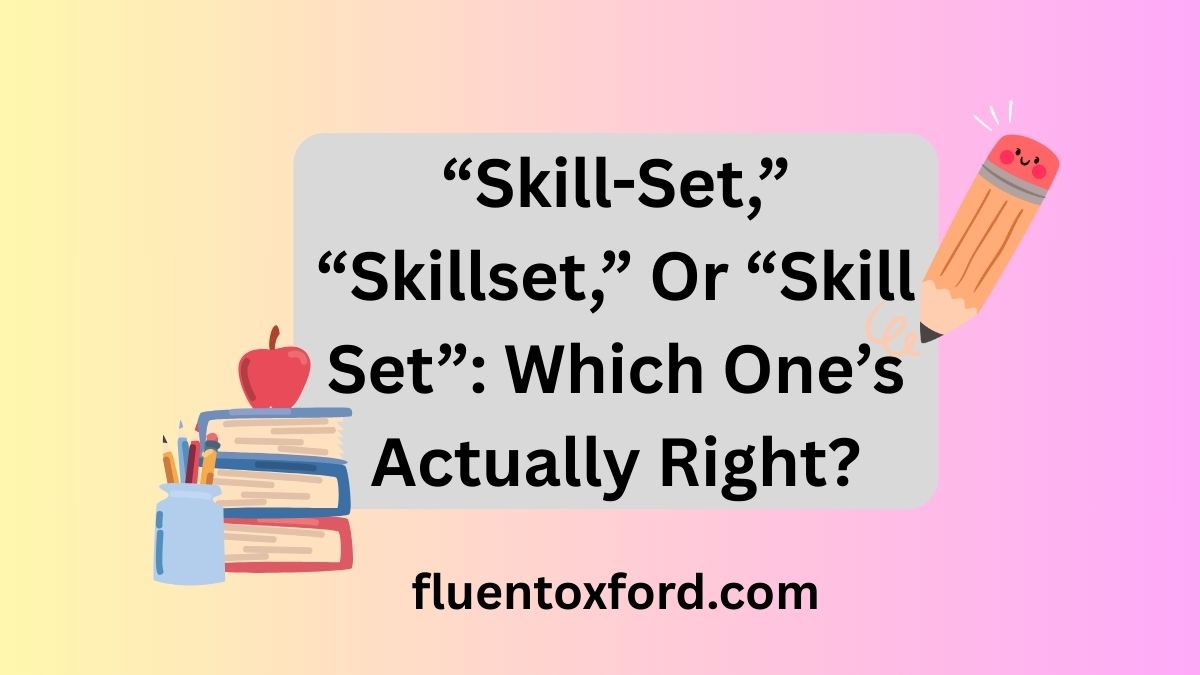In both professional and academic communication, the term skill set refers to a combination of abilities, talents, and expertise needed to perform a job or task effectively. It includes both technical proficiencies and interpersonal strengths, making it a crucial concept across industries. However, the spelling of this term often varies—commonly appearing as “Skillset,” “Skill Set,” or “Skill-Set.” Understanding the correct usage of “Skillset,” “Skill Set,” or “Skill-Set”: which is right? is important for maintaining clarity, consistency, and professionalism in written content.
In today’s fast-paced digital landscape, the smallest details in language can carry significant weight. The way a term is written can affect everything from how it’s perceived by a hiring manager to how well it performs in search engine results. A single space or hyphen in “Skillset,” “Skill Set,” or “Skill-Set”: which is right? can influence readability, SEO performance, and brand credibility—especially when used in resumes, websites, or professional profiles.
The ongoing debate about the correct form reflects broader shifts in language use, both online and offline. Writers, editors, and marketers must consider not just grammar, but also how modern readers consume and search for content. Choosing the right version isn’t merely about preference—it’s about aligning with current language standards and maximizing engagement across platforms.
Why the Confusion Exists Around “Skillset” vs. “Skill Set”
The issue begins with how compound nouns form and evolve. A compound noun is created when two words join to form a single concept—like “toothbrush” or “blackboard.”
Here’s what causes the confusion:
- English is inconsistent when it comes to combining words.
- Some compound nouns start as two separate words (“ice cream”), then later become hyphenated (“ice-cream”), and eventually turn into single words (“icecream”)—though not all make it to the last stage.
- The word “skill set” is relatively new in its widespread usage, mostly becoming common in the late 20th century with the rise of resume writing and corporate job descriptions.
- Thanks to digital tools and typing habits, more people lean toward compressing terms into single-word forms.
What Does “Skill Set” Mean?

At its core, a skill set refers to a group of abilities, qualifications, or competencies that someone possesses—typically related to a job or task.
Example: “Her skill set includes project management, UX design, and data analysis.”
Let’s break this down:
- “Skill” = an ability to perform a task well.
- “Set” = a collection or group.
Together, they form a noun phrase, not a single word. This is the grammatically standard version accepted by most style guides.
Is “Skillset” a Real Word?
Technically, yes—though it depends on which major dictionaries you trust.
📘 Dictionary Recognition
| Dictionary | Entry for “Skillset” | Notes |
| Merriam-Webster | ✅ Yes | Listed as a single word |
| Oxford English Dictionary | ❌ No | Prefers “skill set” |
| Collins | ✅ Yes | Marked as informal usage |
| Cambridge | ❌ No | Uses “skill set” only |
This shows a language preference leaning toward “skill set” in traditional circles, with “skillset” emerging informally due to widespread tech and corporate usage.
“Skillset” vs. “Skill Set”: Key Differences
| Form | Part of Speech | Formality Level | Style Guide Approval | Example |
| Skill Set | Noun Phrase | Formal | ✅ Widely accepted | She has a versatile skill set. |
| Skillset | Compound Noun | Informal/Modern | ⚠️ Mixed | Her skillset fits the job well. |
When to Use Each:
- Use “skill set” in resumes, academic papers, business communications, and formal emails.
- Use “skillset” in marketing copy, tech blogs, or casual writing, but only when clarity isn’t compromised.
Grammar tip: “Skillset” can be flagged in editing software like Grammarly or Microsoft Word depending on your settings.
Is “Skill-Set” Ever Correct?
No, “skill-set” is almost always incorrect in modern English.
Why?
- Hyphenated compound nouns often exist during the transitional phase between two separate words and one compound word.
- “Skill-set” never gained standardized acceptance. It appears rarely and mostly in outdated or non-edited texts.
Incorrect: “His skill-set is outdated.”
Correct: “His skill set is outdated.”
Unless you’re quoting historical documents or using older British texts, skip the hyphen.
What Style Guides Say About “Skill Set”
Style Guide Breakdown:
| Style Guide | Preferred Usage | Notes |
| AP Stylebook | Skill set | No hyphen or compound |
| Chicago Manual of Style | Skill set | Compound noun, not closed |
| APA | Skill set | Treat as two words |
| MLA | Skill set | Consistent with standard English |
These authoritative sources maintain terminology consistency and lean toward traditional usage. If you’re writing professionally, defer to “skill set.”
Historical Usage and Language Evolution

Let’s take a look at how this term has evolved over time.
Google Ngram Viewer Results:
- “Skill set” started appearing in literature around the 1970s.
- “Skillset” didn’t show measurable usage until the late 1990s.
- “Skill-set” spiked briefly but disappeared after 2005.
This timeline reflects language evolution—how common usage often pushes boundaries until grammar adjusts or rejects it.
Real-World Case Study:
LinkedIn (2023) job postings:
- “Skill set” = 72% usage
- “Skillset” = 27% usage
- “Skill-set” = 1%
Public perception still favors the original two-word form, especially among hiring managers and recruiters.
Regional Differences in Usage
Language often shifts subtly across borders.
Observed Variations:
| Region | Common Form | Context |
| United States | Skill set | Business, academic, HR |
| United Kingdom | Skill set | Standard usage |
| Canada | Skill set | Government documents, education |
| Australia | Skillset (informal) | Startup and tech culture |
| India | Mixed | Depends on industry; tech leans toward “skillset” |
Regional differences matter if you’re writing for an international audience. Always consider the language preference of your target readers.
Real-World Usage in Context
Here are examples that show the correct and incorrect usage of each variation:
✅ Correct Examples:
- “She’s developed a skill set that matches the job’s requirements.”
- “The candidate’s skill set includes both technical and soft skills.”
- “We’re looking for someone with a well-rounded skill set.”
- “The ideal candidate must have a diverse skill set, including project management, communication, and technical expertise.”
- “Her skill set includes advanced data analysis, programming in Python, and team leadership.”
- “The company offers workshops to help employees expand their skill sets in customer service and time management.”
- “Developing a broader skill set can make you more adaptable and competitive in the job market.”
- “As a freelancer, I constantly update my skill set to meet the evolving demands of my clients.”
- “Each member of the team brings a unique skill set that contributes to the project’s success.”
- “To transition into tech, he had to acquire a new skill set, including coding and problem-solving.”
❌ Incorrect or Risky Examples:
- “Her skillset is strong.” (Acceptable in casual blogs but not in formal reports.)
- “We need a person with a diverse skill-set.” (Hyphenated form is outdated.)
The goal is clarity and consistency. In most professional settings, “skill set” remains the safest and most polished choice.
Synonyms and Alternatives to “Skill Set”
Looking to avoid repetition in your writing? Here are synonyms:
- Competency Profile – Overview of demonstrated professional abilities.
- Area of Expertise – Specific field of proven skill.
- Professional Abilities – Skills gained through job experience.
- Technical Proficiencies – Mastery of specialized technical tasks.
- Core Competencies – Essential strengths in performance areas.
- Workplace Skills – Abilities applied in job roles.
- Knowledge Base – Foundation of subject-specific understanding.
- Talent Portfolio – Collection of individual strengths/skills.
- Job Qualifications – Required skills for employment success.
- Occupational Skills – Abilities needed for specific work.
Example: “The role requires a unique combination of competencies and leadership skills.”
Use these alternatives to keep your writing fresh and dynamic.
Public Perception and Language Trends

Today’s internet culture shapes how we write—and what we accept.
Trending Data (2024):
- Google Search Volume:
- “Skill set” – 18,000 monthly searches
- “Skillset” – 7,500 monthly searches
- “Skill-set” – 300 monthly searches
- Social media: Hashtags like #skillset are more popular, but when you look at resume samples, “skill set” dominates.
- Reddit and Quora threads reveal ongoing confusion, with many asking, “Is skillset one word or two?” The top answers usually recommend the two-word form.
This reinforces the idea that standard English usage still trumps internet slang—at least in professional writing.
Final Verdict: Which One Should You Use?
If you want to sound credible, professional, and grammatically correct, go with “skill set.” It’s accepted by all major style guides, easily understood, and widely used in business and academia.
Quick-Reference Table
| Term | Use It When | Avoid If |
| Skill set | Writing resumes, academic essays, reports | You’re in a very informal or marketing setting |
| Skillset | Writing casually or for blog headlines | Formal business communication |
| Skill-set | Quoting dated material | Writing anything modern |
Conclusion
Choosing the correct form of a phrase may seem small, but it can make a big difference. When it comes to “Skillset,” or “Skill Set”: Which is Right? the most accepted and widely used version is “Skill set.” This two-word form is clear, standard, and recognized in most dictionaries. It helps in making your writing look more professional and easy to understand.
In today’s digital world, using the right version also matters for online visibility. Whether you’re writing a resume, blog, or job ad, the correct choice affects how people find and read your content. So, when asking “Skillset,” or “Skill Set”: Which is Right? the safest and smartest choice is “Skill set.” It fits best in both formal writing and online searches, helping you communicate more clearly and effectively.
Q1: Is “skillset” one word or two?
Answer: Most style guides and dictionaries prefer “skill set” as two words; “skillset” is considered informal but increasingly common in tech and marketing.
Q2: Is “skill-set” with a hyphen ever correct?
Answer: No, “skill-set” is outdated and rarely accepted in modern writing—avoid using the hyphenated form.
Q3: Which form should I use in a resume or LinkedIn profile?
Answer: Always use “skill set” in professional documents to align with formal standards and recruiter expectations.
Q4: Do major dictionaries recognize “skillset”?
Answer: Merriam-Webster and Collins list “skillset” as valid, but Oxford and Cambridge do not—it’s best to default to “skill set.”
Q5: Are there regional preferences for “skillset” vs. “skill set”?
Answer: Yes, U.S. and U.K. English favor “skill set,” while regions like Australia and parts of Asia sometimes use “skillset” more casually.

As an admin at Fluent Oxford, Maida Queen is the driving force behind our vibrant learning community. With a deep passion for English language education, she ensures that our platform remains a dynamic, engaging, and supportive space for learners worldwide.
Maida expertly manages content, assists users with their grammar and fluency queries, and fosters an interactive environment where learning feels effortless and enjoyable. Whether you need guidance, motivation, or just a friendly face in the Fluent Oxford community, Maida is always there to help you reach your English language goals.








